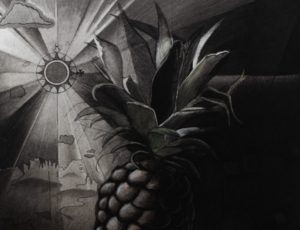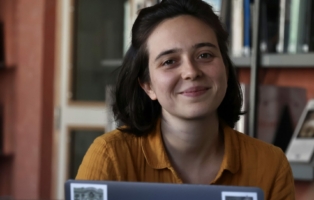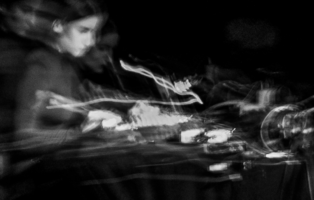
Ugo Petronin and Dylan Altamiranda come to NIAS
Two Nouveau Grand Tour Fellows join NIAS for summer residency
19 May 2025Both artists will be in residence from 7 July to 6 August 2025, bringing with them multidisciplinary projects that reflect on colonial histories, visual representation, and ecological narratives.
Dylan Altamiranda: Reimagining Colonial Imagery through Drawing
Dylan Altamiranda is a Colombian-born visual artist and researcher based in Paris. He holds degrees from the École nationale supérieure d’arts de Paris-Cergy (2021) and the École des Hautes Études en Sciences Sociales (2023). His work explores the role of imagination in history, particularly in how the Americas have been visually conceptualised since the arrival of European explorers.
At NIAS, Altamiranda will develop a research-based visual project using historical illustrations from Dutch travel accounts produced during the early colonial era. By focusing on the Netherlands’ tradition of engraving and printmaking, he will analyse how visual media shaped colonial perceptions of the Americas. Using drawing as a method of reinterpretation, Altamiranda will create a contemporary travel journal that deciphers how images circulate, mutate, and represent imagined geographies. Special attention will be given to maps, which he sees as layered intersections of text, image, and ideology—palimpsests of world-making.
Ugo Petronin: Cinematic Inquiry into “Benevolence” and Colonial Structures
Ugo Petronin is a filmmaker and visual artist who graduated from the Willem de Kooning Academy in Rotterdam in 2020. His interdisciplinary work blends experimental cinematography, scientific imagery, and participatory approaches to question dominant narratives and explore the ecological implications of visual media.
During his NIAS residency, Petronin will continue developing Benevolences, a film project that investigates the connections between the concept of ‘benevolence’ and colonial systems. Central to his research is the Maatschappij van Weldadigheid (Society of Benevolence), a 19th-century Dutch social reform initiative aimed at reducing poverty through agrarian colonies. These colonies later inspired similar models in France and England. Through a mix of experimental film and historical analysis, Petronin seeks to expose the psychological and political tensions underlying ‘benevolent’ colonial ideologies.
-
 Fellow
FellowHanneke Stuit
-
 Fellowship
FellowshipInstitut français Nouveau Grand Tour
-
 Fellow
FellowAndréanne Béguin
-
 Fellow
FellowLucie Nezri